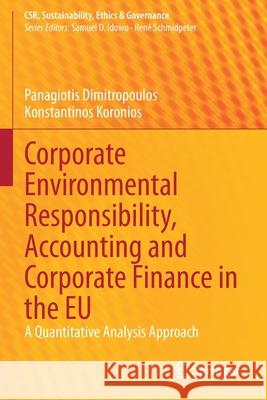Corporate Environmental Responsibility, Accounting and Corporate Finance in the Eu: A Quantitative Analysis Approach » książka
topmenu
Corporate Environmental Responsibility, Accounting and Corporate Finance in the Eu: A Quantitative Analysis Approach
ISBN-13: 9783030727758 / Angielski / Miękka / 2022 / 280 str.
Corporate Environmental Responsibility, Accounting and Corporate Finance in the Eu: A Quantitative Analysis Approach
ISBN-13: 9783030727758 / Angielski / Miękka / 2022 / 280 str.
cena 603,81
(netto: 575,06 VAT: 5%)
Najniższa cena z 30 dni: 578,30
(netto: 575,06 VAT: 5%)
Najniższa cena z 30 dni: 578,30
Termin realizacji zamówienia:
ok. 16-18 dni roboczych.
ok. 16-18 dni roboczych.
Darmowa dostawa!
Kategorie:
Kategorie BISAC:
Wydawca:
Springer
Język:
Angielski
ISBN-13:
9783030727758
Rok wydania:
2022
Ilość stron:
280
Waga:
0.39 kg
Wymiary:
23.39 x 15.6 x 1.5
Oprawa:
Miękka
Wolumenów:
01
Dodatkowe informacje:
Wydanie ilustrowane











